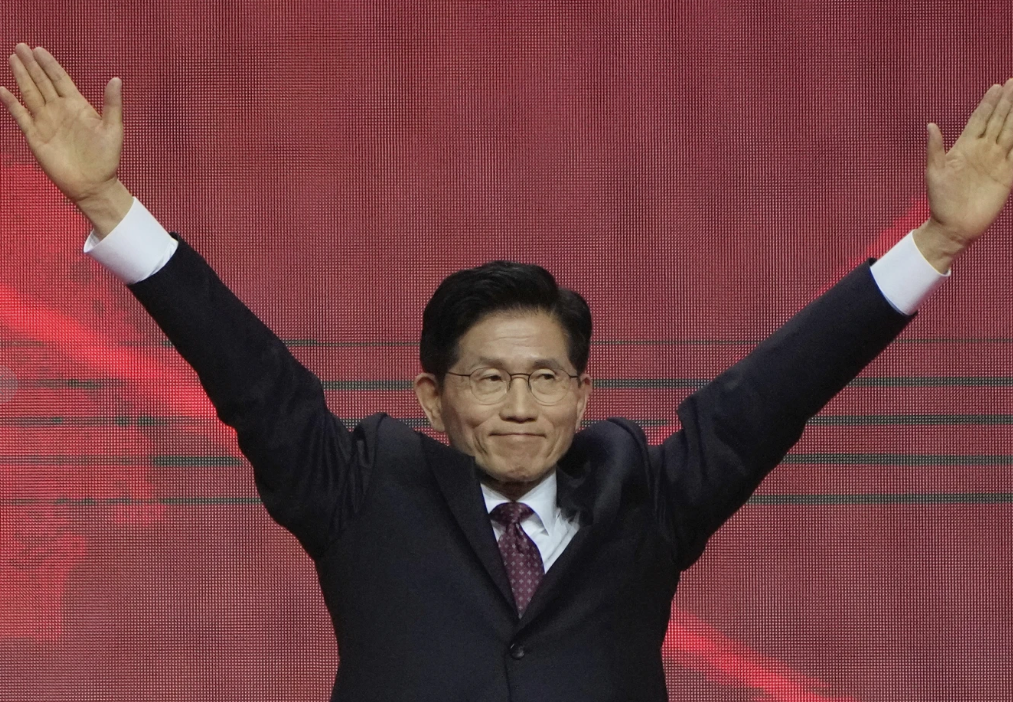Kim Moon Soo, a former labor minister and prominent conservative figure, has secured the presidential nomination for South Korea’s main conservative party. He now prepares for a challenging contest against liberal frontrunner Lee Jae-myung in the June 3 election.
Kim, who won 56.5% of votes in the final round of the party’s primary, defeated his only remaining challenger, Han Dong-hun. Other candidates were eliminated in earlier rounds. In his victory speech, Kim emphasized unity among conservatives, stating that he would form broad alliances to stop Lee and his Democratic Party from gaining power.
Kim is expected to reach out to other conservative leaders, such as former Prime Minister Han Duck-soo, to avoid splitting the conservative vote and to strengthen the chances of winning against the liberal opposition.
This election comes amid political turmoil following the impeachment and dismissal of President Yoon Suk Yeol, a member of the People Power Party. Yoon was impeached by the opposition-led National Assembly in December after declaring martial law—a move the Constitutional Court overturned in April.
Although Kim opposed Yoon’s impeachment, he also expressed disagreement with the martial law decision. His refusal to apologize on behalf of the Cabinet in a dramatic parliamentary moment bolstered his support among hardline conservatives.
His primary opponent, Han Dong-hun, once served as Yoon’s first justice minister and leads a reform-minded minority faction within the PPP. Han had supported Yoon’s impeachment and joined opposition lawmakers in voting for it—an essential move, as the opposition alone lacked enough votes to pass the motion.
Political analysts suggest that Han’s nomination could have attracted more centrist voters, potentially boosting the conservative campaign’s broader appeal. However, Kim’s victory signals a consolidation around traditional conservative values and priorities.
At 73, Kim brings decades of political experience. Once a radical labor activist during the 1970s and 80s, he turned to conservative politics in the 1990s after witnessing the collapse of communist regimes. His political résumé includes serving as governor of Gyeonggi province and three terms in the National Assembly.
If elected, Kim has pledged to combat corruption, reform pensions and financial systems, expand spending on AI infrastructure, and strengthen military ties with the United States. He also plans to introduce nuclear-powered submarines to bolster deterrence against North Korea.
On the opposing side, Lee Jae-myung, who recently secured the Democratic Party nomination, remains the election favorite. However, a recent Supreme Court decision ordering a retrial in his election law case could cast uncertainty over his campaign. While it’s unclear whether this will legally derail his candidacy before June 3, political attacks from rivals are expected to intensify.













